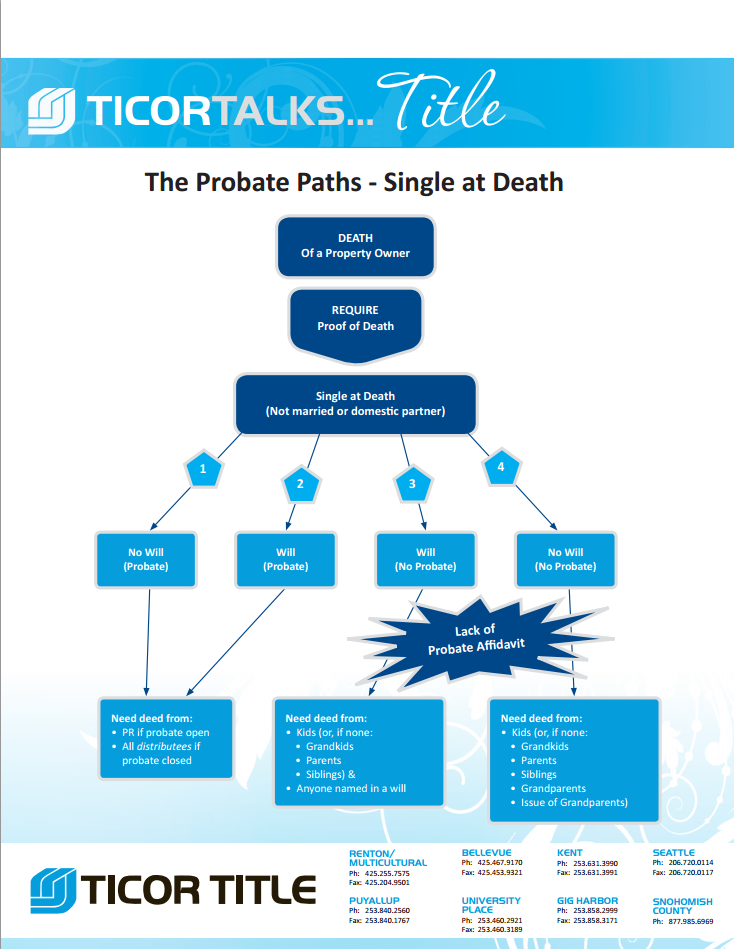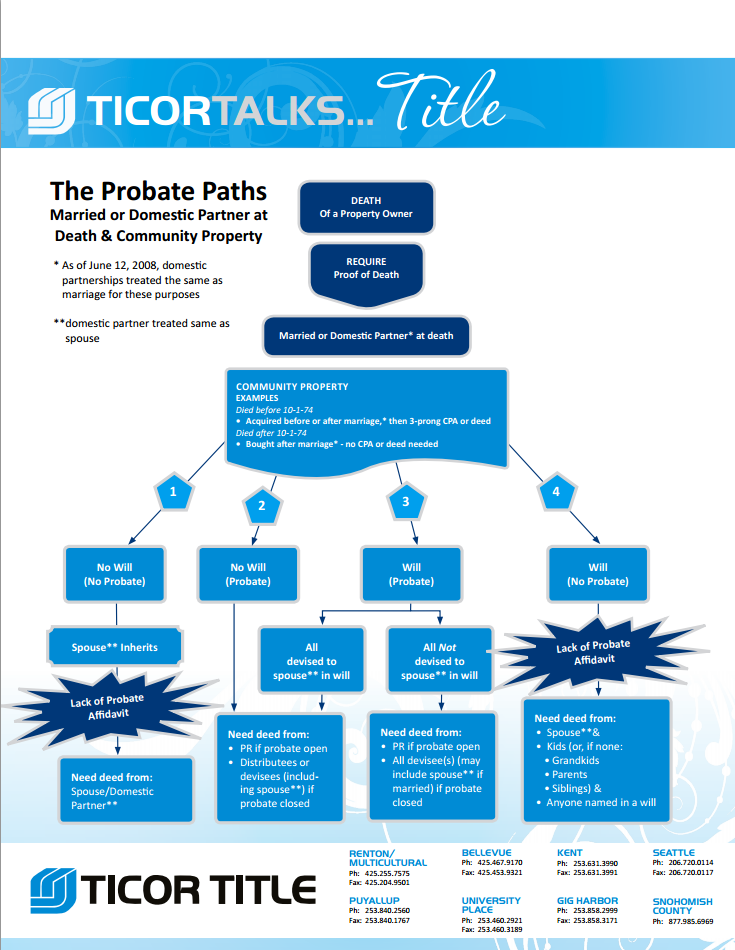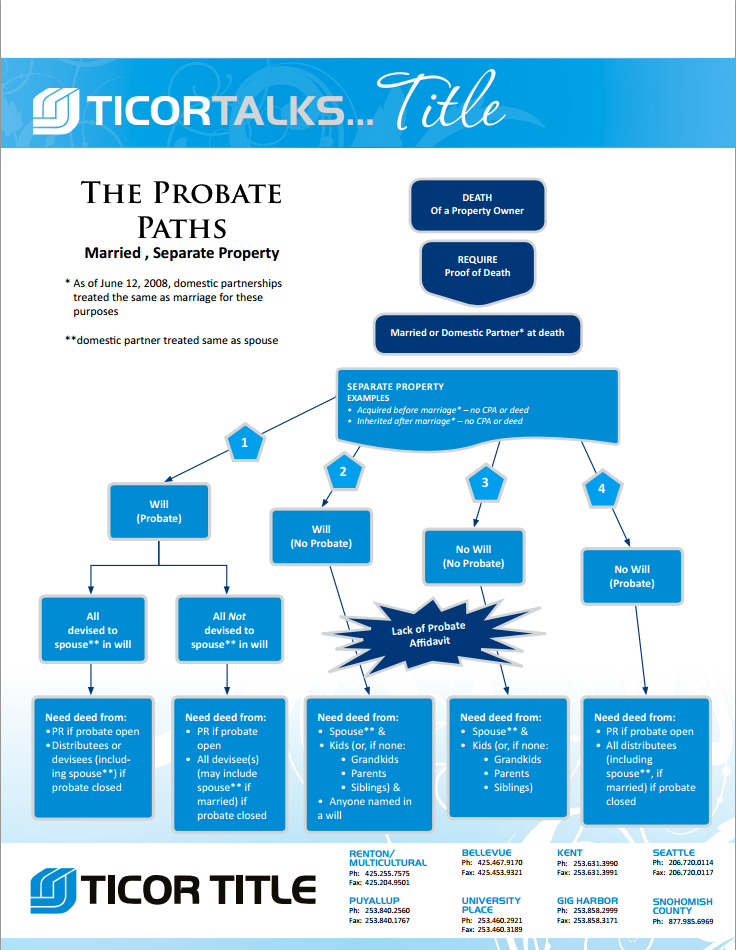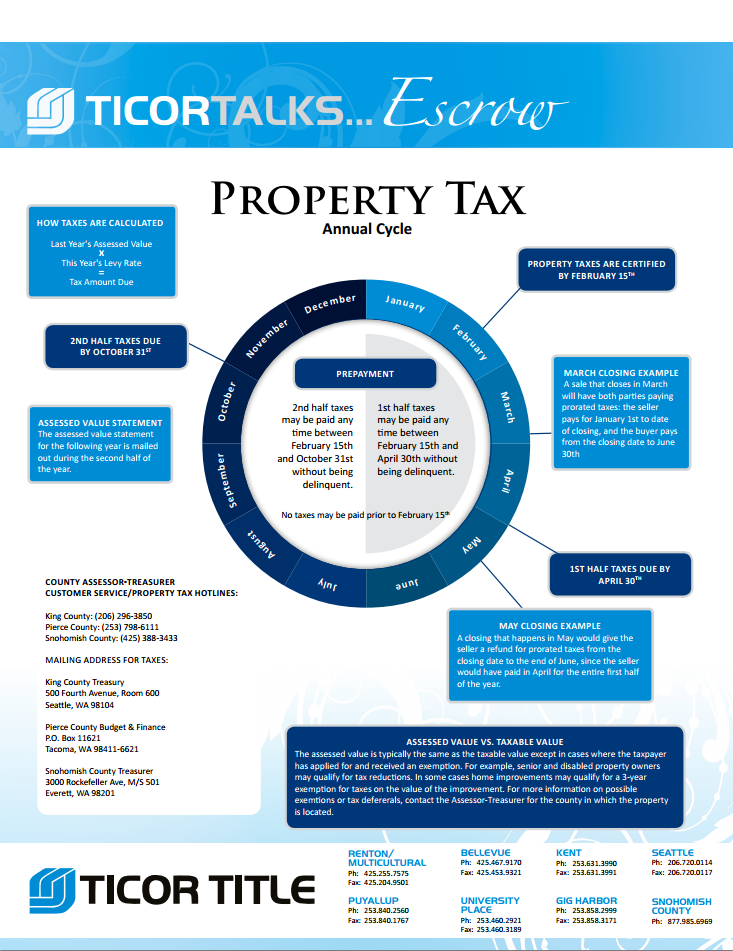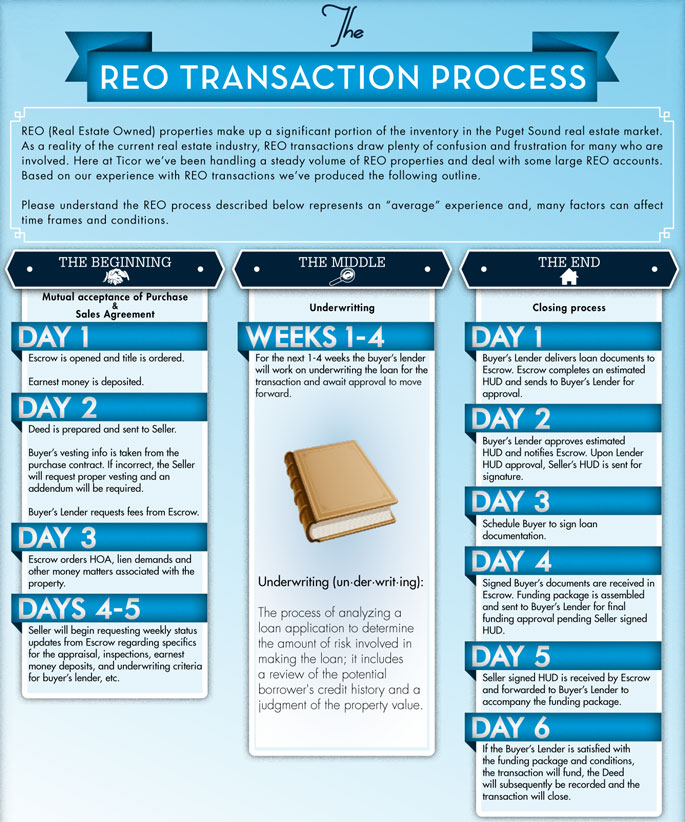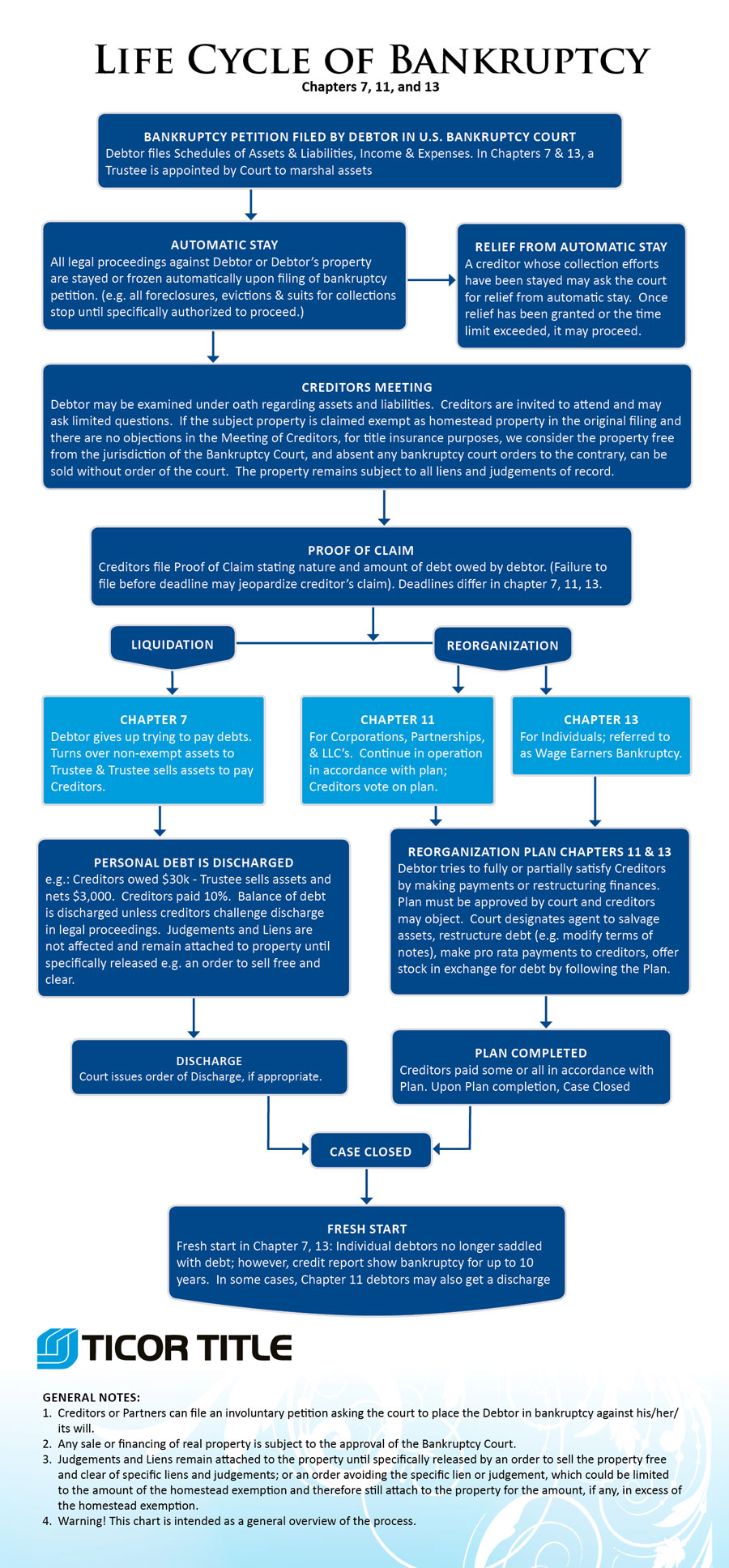RaeAnn F., an escrow officer in one of our sister branches, opened a sale transaction. The sales price was $214,500. The seller held title as a single man and the title report revealed only one lien against the property. The beneficiary listed on the lien was an individual.
 RaeAnn obtained the beneficiary’s contact information from the seller and called him several times. When he finally responded he directed her to work with his protégé, Paul. RaeAnn explained what she needed in order to pay the loan off at closing; the payoff demand, original note, deed of trust and request for reconveyance. Upon receipt of the documents RaeAnn noticed a 50% interest in the note was assigned to a self–directed IRA – for benefit of Paul’s wife!
RaeAnn obtained the beneficiary’s contact information from the seller and called him several times. When he finally responded he directed her to work with his protégé, Paul. RaeAnn explained what she needed in order to pay the loan off at closing; the payoff demand, original note, deed of trust and request for reconveyance. Upon receipt of the documents RaeAnn noticed a 50% interest in the note was assigned to a self–directed IRA – for benefit of Paul’s wife!
RaeAnn informed Paul she needed to speak with the custodian or trustee of the IRA. The custodian was very confused and unsure what to do, but did require an assignment to the deed of trust be signed by the original beneficiary and recorded. The escrow officer, buyer, new lender and seller all waited until this was done and an updated prelim could be issued. After several weeks RaeAnn finally obtained all the documentation she needed to pay off the loan. The whole time she received pressure from the seller to close.
An early signing raises suspicions
The seller was planning on leaving town so he made an appointment to come in and sign his closing documents early. At the signing, he and his real estate agent talked about how they were both leaving town. The seller was leaving for Las Vegas and the agent was heading to China. Something they said in their conversation made RaeAnn question the seller’s marital status. She asked him if he was married and he said no, but not with confidence. RaeAnn was suspicious, but he signed an affidavit confirming his marital status so the document was accepted.
Three days later the receptionist called RaeAnn to let her know the seller’s wife had come by to drop off a power of attorney (POA). The POA appointed the seller’s wife as his attorney–in–fact. Huh, his wife? RaeAnn sent the POA to her title officer for review and informed him the attorney–in–fact was the seller’s wife and asked him to update the title report reflecting her spousal interest. The title officer approved the POA and sent an updated title report which included two new liens.
The liens were for the benefit of the State Board of Equalization and against the seller’s wife. The amounts due were just over $62,000. RaeAnn called the seller and left a message stating she needed to discuss an interspousal deed and additional liens which would have to be paid.
Meanwhile, the buyer signed his loan documents. The seller’s business partner, Tommy, called RaeAnn back. She explained to Tommy she needed to speak with the seller directly. Tommy indicated the seller was unavailable, and asked what she needed. RaeAnn asked where he was. Tommy again avoided the question, offering to help her himself. She reiterated she needed to speak with the seller.
Tommy told her the seller’s wife has been appointed as his attorney–in–fact so RaeAnn should contact her. Knowing she needed to have the wife sign an interspousal deed, RaeAnn contacted the wife to schedule an appointment for her to come into the office. RaeAnn knew she was going to be pressured into allowing the attorney–in–fact to sign the final closing statement. She was very uncomfortable since the new liens being paid would financially benefit the wife. Additionally, she did not understand why the seller could not be contacted. All she needed was a fax number or email to send the closing statement to him. She did not need an original signature. RaeAnn contacted National Escrow Administration for a second opinion. The Corporate Escrow Administrator agreed with RaeAnn’s concerns. Armed with the backing of National Escrow Administration she confronted the wife when she came in to sign the interspousal deed.
Then RaeAnn asked her where her husband was. The wife finally admitted he was arrested and being held in a New York jail!
RaeAnn looked the wife in the eye and asked her if they were married or not – pointing out the language included in the POA which stated they had been married since 1996. The wife explained they had a civil ceremony and they never signed or filed a marriage license. At this point they assumed they were married by common law. RaeAnn explained to the wife in order to proceed she would treat them as if they were husband and wife and have the wife sign a deed conveying her spousal interest. Then RaeAnn asked her where her husband was. The wife finally admitted he was arrested and being held in a New York jail!
RaeAnn explained to the wife she needed to obtain her husband’s signature on the closing statement. The wife asked why, reiterating she was his attorney–in–fact. RaeAnn explained she was not willing to move forward without the husband’s approval of the closing statement. The wife reluctantly provided RaeAnn with the fax number for her husband’s New York attorney. RaeAnn faxed the closing statement over to the attorney along with specific instructions requiring a copy of the attorney’s business card be faxed back to her. The attorney called her and asked what she needed. RaeAnn explained she was handling the sale of a home owned by his client and she needed his signature on the closing statement since it included the payment of over $62,000 in state tax liens for the benefit of his wife. The attorney said he needed to check with the U.S. Attorney’s office to see if the sale of this home was allowed.
A search for federal liens
RaeAnn called National Escrow Administration to provide an update. The Corporate Escrow Administrator pointed out the Company needed to know if this property was subject to seizure or a RICO lien. In order to insure the new owner, the Company needed confirmation there was not a lien filed and whether one was going to be filed against the property. In the U.S., federal agency liens have priority over purchase money mortgages and are good for 20 years.
RaeAnn called the seller’s attorney back. The attorney had obtained the seller’s signature on the closing statement and explained the U.S. Assistant Attorney indicated they did not intend on seizing this property. RaeAnn asked for the U.S. Assistant Attorney’s contact information. He provided it to her along with the inmate and case numbers.
The Corporate Escrow Administrator consulted with Rod Pasion in Underwriting to ensure we were taking all measures to safely insure the buyer and new lender on this sale. Rod explained the U.S. Attorney’s office met with the title insurance industry years ago, and they agreed to promptly record their notice of seizures. Since then they have been quite diligent in timely recording their notices.
As an extra precaution the Corporate Escrow Administrator called the U.S. Assistant Attorney and confirmed they had already filed liens against the properties they intended on seizing. If a lien was not of record, it was not a property they intended to seize. RaeAnn emailed her title officer asking him to bring the title search to date to confirm there was not a seizure notice recorded against this property.
Another time crunch
There was no seizure notice, but another lien against the wife showed up; an IRS tax lien for just over $13,000. The buyer had just signed loan documents, for a second time. The lender indicated the lock on the loan would expire in two days.
RaeAnn delivered the latest update to the buyer, his real estate agent, the loan officer and the listing agent who had just returned from China. She explained it would take a few weeks to obtain a payoff statement from the IRS, assuming the deal would be dead since the buyer’s lock was expiring.
RaeAnn was wrong about the deal being dead. All the parties agreed to wait. The buyer really wanted the house and the seller needed to sell. RaeAnn ordered the payoff from the IRS and everyone waited for it to come in. The seller’s attorney was also on standby to obtain the seller’s signature on the final closing statement along with the IRS payoff.
Although this story had several twists and turns – starting with an uncooperative beneficiary, then a surprise wife and finally a missing seller – RaeAnn made very reasonable requirements in order to proceed with the closing and protect the Company.
RaeAnn received a lot of pressure from both the seller’s business partner and wife, who tried to hide where the seller was. They kept indicating the wife could sign since she was appointed as the seller’s attorney–in–fact. Since the seller told RaeAnn he was single, and even signed an Affidavit confirming this, RaeAnn wanted to be sure he was fully aware of the fact she knew he was married and would be paying off his wife’s liens with the proceeds from the sale.
Lastly, she worked with the seller’s attorney, the National Escrow Administration team and title to ensure the property was not in danger of being seized in relation to the charges the seller was facing. For her persistence and careful attention to all the issues which came up in this transaction RaeAnn has been recognized and rewarded.
 Call one of the nationwide credit reporting companies, and ask for a fraud alert on your credit report. The company you call must contact the other two so they can put fraud alerts on your files. An initial fraud alert is good for 90 days.
Call one of the nationwide credit reporting companies, and ask for a fraud alert on your credit report. The company you call must contact the other two so they can put fraud alerts on your files. An initial fraud alert is good for 90 days.






